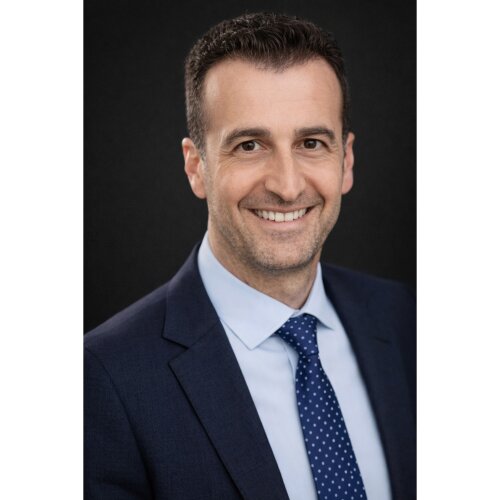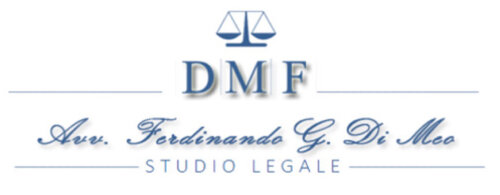Best Funds & Asset Management Lawyers in Italy
Share your needs with us, get contacted by law firms.
Free. Takes 2 min.
Or refine your search by selecting a city:
List of the best lawyers in Italy
About Funds & Asset Management Law in Italy
Funds and asset management law in Italy covers the legal framework governing the creation, management, and supervision of collective investment funds, asset management companies, and investment strategies. This area of law ensures investor protection, market integrity, and compliance with both national and European Union regulations. The regulatory system is designed to balance innovation in the financial sector with the need for oversight and risk management, making Italy a significant financial hub within the EU. Legal practitioners in this field need to understand various regulations that apply to investment funds, portfolio management, and advisory services, as well as relevant taxation and compliance requirements.
Why You May Need a Lawyer
Engaging a lawyer specializing in funds and asset management is crucial in several situations. Individuals and companies may need legal advice when establishing a new investment fund, launching a portfolio management business, or entering into cross-border investments. A lawyer can also help interpret complex regulatory requirements, draft and review fund documentation, negotiate with financial institutions, or handle disputes involving investors or regulatory authorities. Additionally, legal assistance is important for ensuring compliance with anti-money laundering regulations, managing taxation issues, and navigating mergers, acquisitions, or restructuring of asset management companies.
Local Laws Overview
Funds and asset management in Italy are mainly regulated by Legislative Decree No. 58 of 1998, also known as the Consolidated Law on Finance (TUF), and overseen by regulatory bodies such as the Bank of Italy and the Italian Securities and Exchange Commission (Consob). The legal framework incorporates key obligations from European legislation, including the UCITS Directive for collective investment schemes and the AIFMD for alternative funds. The law distinguishes between different types of investment funds, such as UCITS, AIFs, real estate funds, and private equity funds. Asset management companies must obtain the necessary authorizations, comply with operational, organizational, and prudential requirements, and regularly report to supervisory authorities. Investors are protected by stringent disclosure, transparency, and conduct of business rules.
Frequently Asked Questions
What is an investment fund under Italian law?
An investment fund in Italy is a collective investment scheme that pools investors' money to invest in financial instruments, real estate, or other assets according to a defined strategy. Funds can be open-ended or closed-ended and are regulated to protect investors.
Who regulates funds and asset management in Italy?
The primary regulators are the Bank of Italy and Consob. These authorities oversee fund registration, management activities, compliance, and investor protection.
What are the main types of funds available in Italy?
Italy offers UCITS funds, which are harmonized at the European level, alternative investment funds (AIFs), real estate funds, closed-ended private equity funds, and other specialized funds under both national and EU law.
Do asset management companies need a license in Italy?
Yes, management companies must obtain authorization from the relevant authority, comply with minimum capital and organizational requirements, and regularly report on their activities.
Can foreign asset managers operate in Italy?
Yes, foreign managers can operate in Italy, typically through the EU passporting regime or by establishing a local presence and following the necessary registration and regulatory procedures.
What investor protections exist in Italy?
Italian law mandates clear disclosure of fund terms, risks, fees, and investment objectives. There are also segregation of assets rules, ongoing supervisory controls, and mechanisms for resolving investor complaints.
How are funds taxed in Italy?
Taxation depends on the type of fund and status of the investor. There are specific rules for capital gains, dividend income, and withholding taxes, and double taxation treaties may apply for foreign investors.
What obligations do asset managers have regarding anti-money laundering?
Asset managers must implement robust anti-money laundering policies, conduct due diligence on clients, monitor transactions, and report suspicious activities to the authorities as required by Italian and EU legislation.
What are the compliance challenges in this sector?
Key challenges include keeping up with frequent regulatory changes, ensuring transparency and fair dealing, complying with cross-border rules, and implementing effective risk management and reporting systems.
What happens if a fund or manager breaches regulations?
Breaches can result in regulatory investigations, financial penalties, suspension or revocation of licenses, and, in serious cases, criminal prosecution. Investors may be entitled to compensation or rescission of contracts.
Additional Resources
Several authoritative resources can help those seeking more information or needing legal advice:
- Bank of Italy - Supervisory and regulatory information about asset management and investment funds.
- Consob - The Italian Securities and Exchange Commission, overseeing conduct of business and investor protection.
- Italian Association of Asset Management (Assogestioni) - Industry insights and best practice guidelines.
- European Securities and Markets Authority (ESMA) - EU-wide regulatory updates and technical standards relevant to Italian managers.
- Italian Ministry of Economy and Finance - Legal texts and guidance on financial market regulation.
Next Steps
If you need legal advice or representation in the area of funds and asset management in Italy, start by identifying your specific issue, such as fund setup, regulatory compliance, or dispute resolution. Gather all related documents and clearly outline your goals and concerns. Then, seek a qualified lawyer with expertise in financial regulation, investment funds, and asset management. Many lawyers offer initial consultations, during which you can discuss your situation and receive guidance on the best course of action. Staying informed and proactive will help protect your interests and ensure compliance with Italian and European regulations.
Lawzana helps you find the best lawyers and law firms in Italy through a curated and pre-screened list of qualified legal professionals. Our platform offers rankings and detailed profiles of attorneys and law firms, allowing you to compare based on practice areas, including Funds & Asset Management, experience, and client feedback.
Each profile includes a description of the firm's areas of practice, client reviews, team members and partners, year of establishment, spoken languages, office locations, contact information, social media presence, and any published articles or resources. Most firms on our platform speak English and are experienced in both local and international legal matters.
Get a quote from top-rated law firms in Italy — quickly, securely, and without unnecessary hassle.
Disclaimer:
The information provided on this page is for general informational purposes only and does not constitute legal advice. While we strive to ensure the accuracy and relevance of the content, legal information may change over time, and interpretations of the law can vary. You should always consult with a qualified legal professional for advice specific to your situation.
We disclaim all liability for actions taken or not taken based on the content of this page. If you believe any information is incorrect or outdated, please contact us, and we will review and update it where appropriate.
Browse funds & asset management law firms by city in Italy
Refine your search by selecting a city.















